This is a useful article by Romain Espinosa and Nicolas Treich comparing radical and moderate messaging in animal advocacy. My personal bias: The messaging of my organisation would count as moderate.
Abstract and a few tables:
"NGOs often vary in terms of how radical they are. In this paper, we explore the effectiveness of NGO discourses in bringing about social change. We focus on animal advocacy: welfarist NGOs primarily seek to improve the conditions in which animals are raised and reduce meat consumption, whereas abolitionist NGOs categorically reject animal use and call for a vegan society. We design an experiment to study the respective impact of welfarist and abolitionist discourses on participants' beliefs regarding pro-meat justifications and their actions, namely their propensity to engage in the short run in animal welfare (charity donation, petition against intensive farming) and plant-based diets (subscription to a newsletter promoting plant-based diets, petition supporting vegetarian meals). We first show that both welfarist and abolitionist discourses significantly undermine participants' pro-meat justifications. Second, the welfarist discourse does not significantly affect participants' actions, although we detect a potential backlash effect of the abolitionist discourse. We show that the NGOs' positive standard effect on actions through the change in beliefs is outweighed by a negative behavioral response to the discourses (reactance effect). Last, greater public-good contributions are associated with greater engagement in animal welfare in the presence of an NGO discourse."
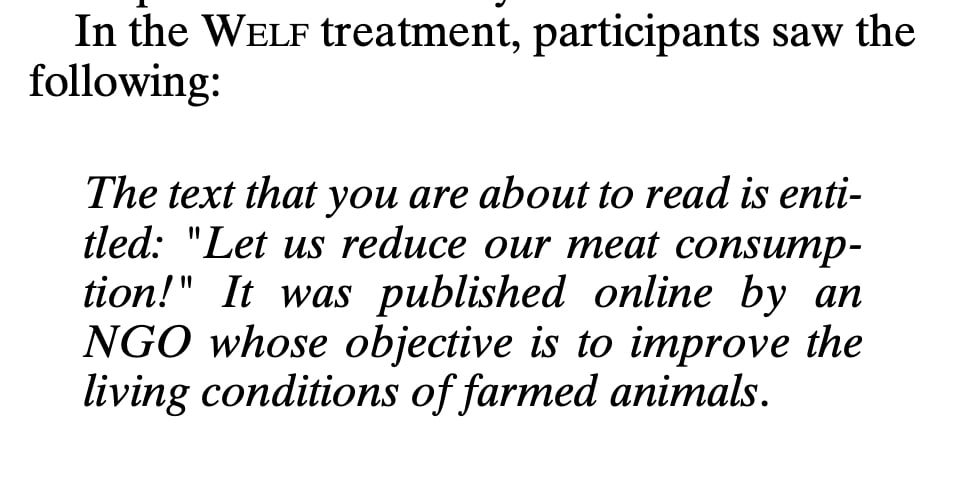
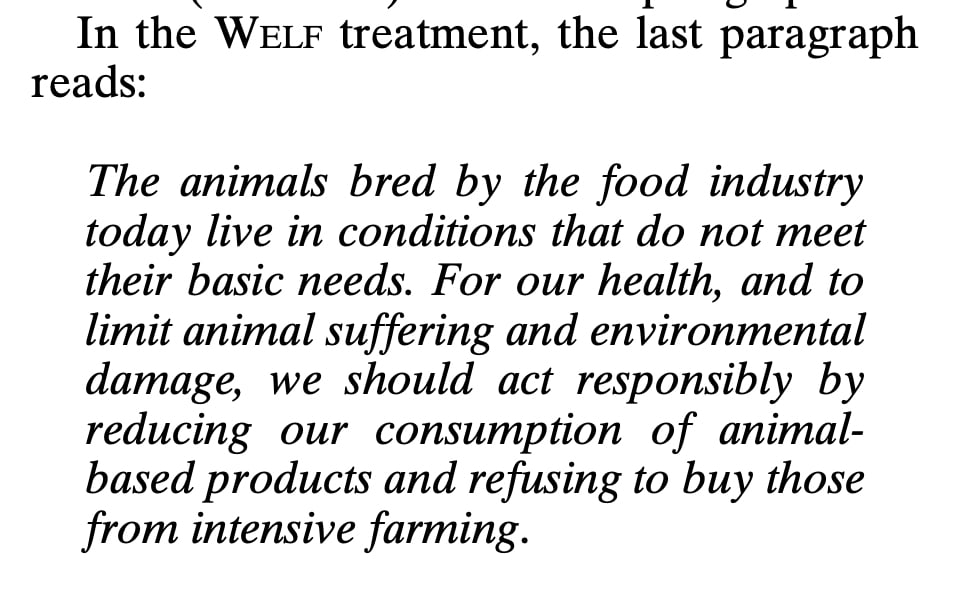
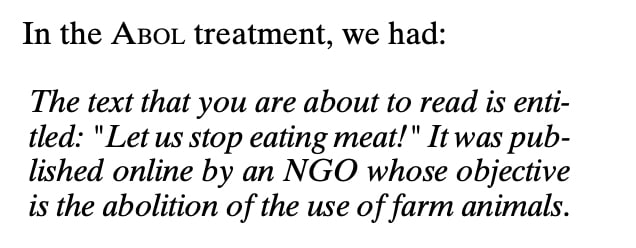
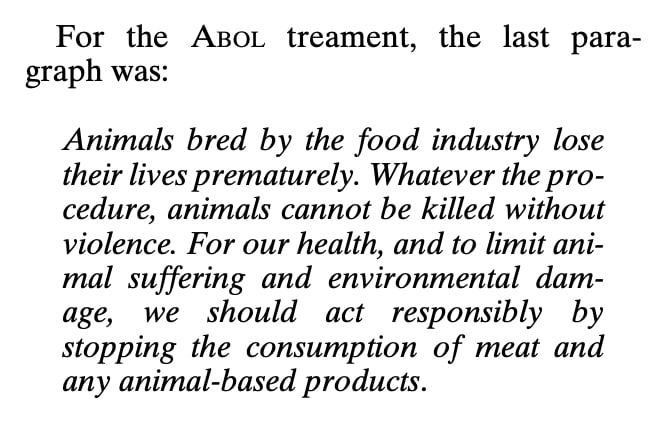
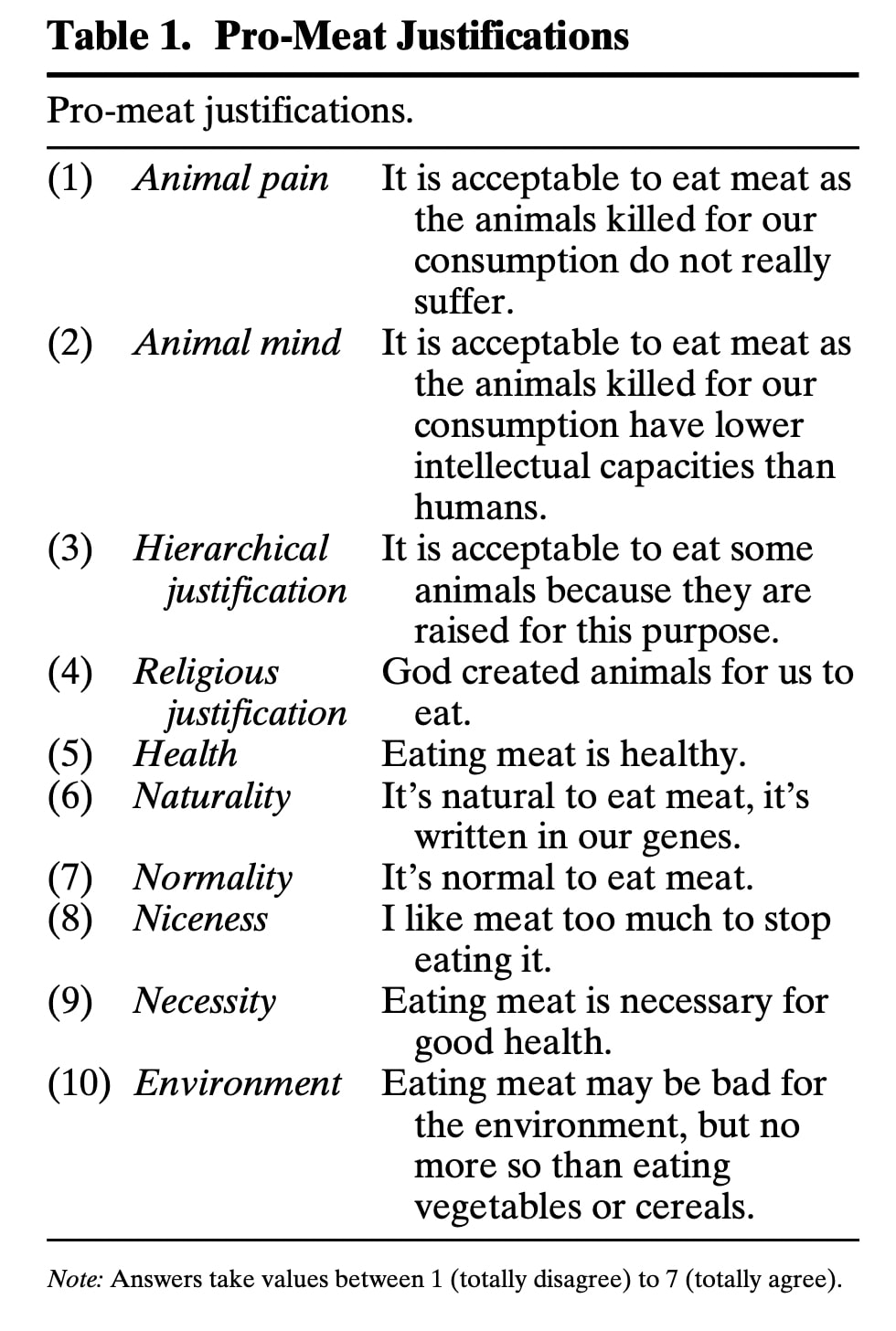
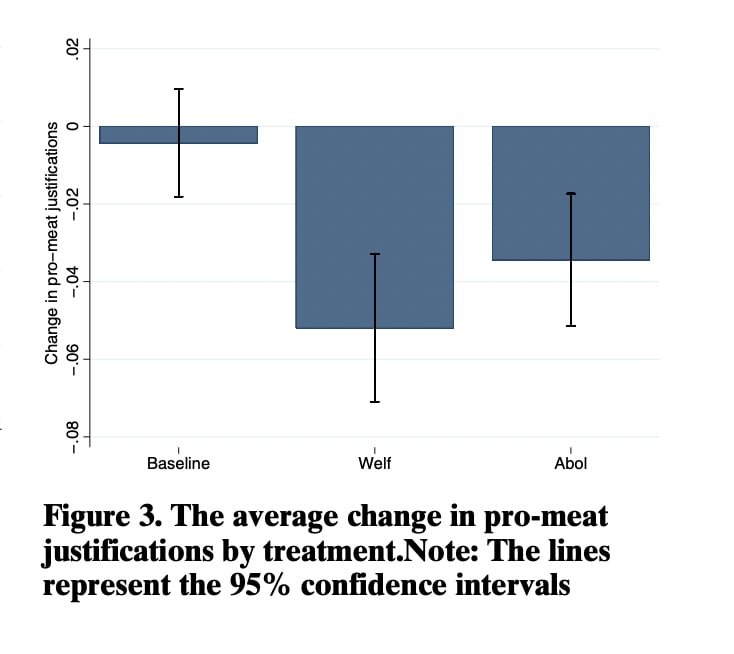
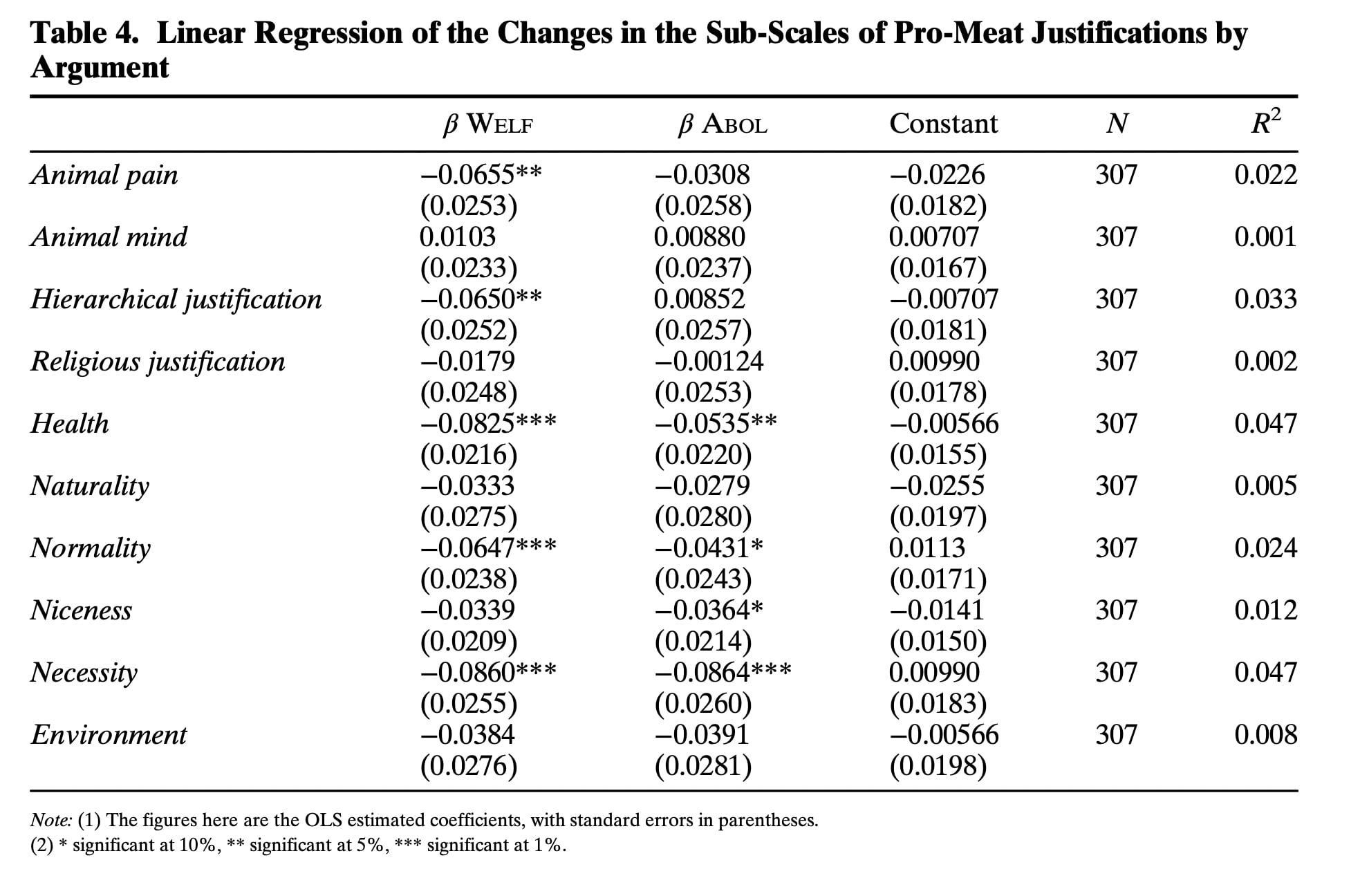

Recently I wrote this piece that can of interest to you:
https://forum.effectivealtruism.org/posts/txQJcvTGdsWyXuZLr/effective-altruism-and-the-trust-business
Veganism is too demanding (see retention rates), and even unnecesary (are ethical eggs truly impossible? Some degree of cruelty is unavoidable in dairy production, but probably the "net positive" milky cow could be attainable).
But lots of people would pay a substantial premium for more ethical animal products. Unfortunately, certifications are not very trustworthy.
In my view, the natural way forward is the creation of a parallel market of "high quality" and (more) ethical animal products. This is also the interest of the industry, as much as renewable electricity production is the interest of electrical utilities.
Currently, farms face cutthroat competition for a stagnant or decrasing share of GDP. But, "ethical and organical" imply true growth perspectives for the sector. The consumer can pay it, and ethical concerns will fuel the whole process. Still, nobody is learning from the enormous sucess of "decarbonization", when utilities understood that renewables were the goose of gold eggs.